Inverewe Garden, Scotland: Part One
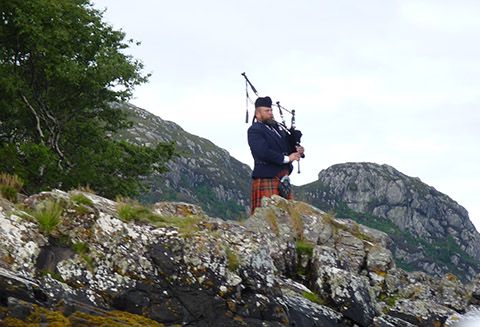
In 1862 Osgood MacKenzie (aged 20 years) was helped by his mother to purchase the 12,000 acre Inverewe and Kearnsay estate. On a rocky and barren promontory overlooking Loch Ewe. 1 The image below isn't the Loch but rather the coastline opposite the garden showing how barren the surrounding landscape is.
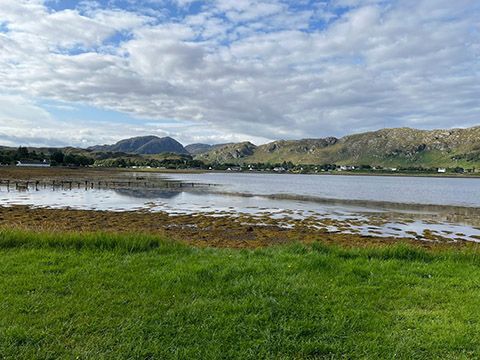
Osgood began to build a house for himself and what turned out to be a garden for the rest of the world to enjoy.
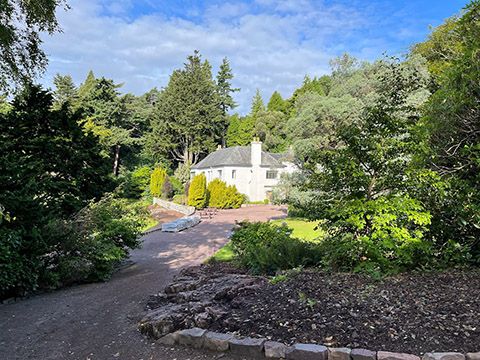
Osgood fenced off an area to keep out deer and rabbits and added to what was already there - one three foot high dwarf willow. He imported spoil from Ireland and trees from Scandinavia; thousands of trees to establish shelter belts.1
Inverewe is on the same latitude as Hudson's Bay in Canada but benefits from relatively warm air sweeping across the Atlantic from the Caribbean and finding landfall in western Scotland. MacKenzie knew that if he could create enough shelter he could encourage growth from a huge variety of species. He also set about reclaiming seashore land. 1
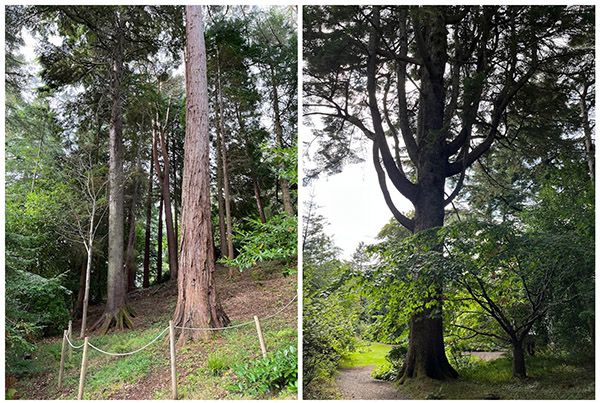
By the end of the C19th Osgood MacKenzie has established the finest collection in Scotland of temperate plants from both northern and southern hemispheres.1
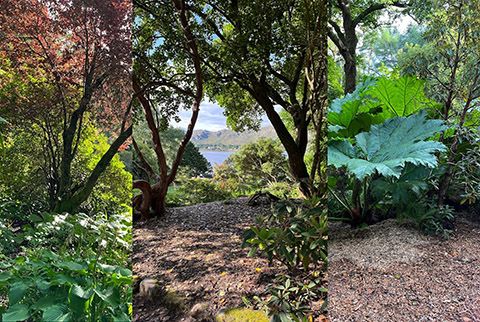
The garden contains the most northerly planting of Wollemi pines, Himalayan blue poppies, olearia from New Zealand, Tasmanian eucalyptus and rhododendrons from China, Nepal and the Indian subcontinent. 1 As an Australian the highlight for me was to see our beautiful Wollemi pines growing so happily and even having babies!!
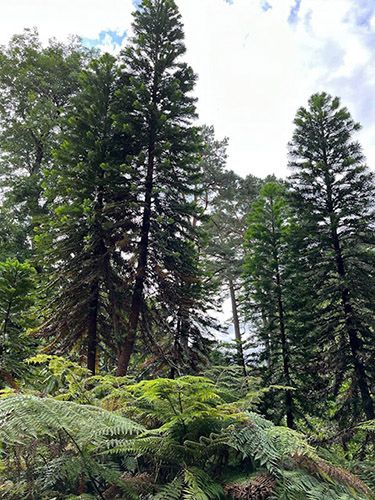
The story of the Woolemi Pines is remarkable as it is one of the world's oldest and rarest plants dating back to the time of the dinosaurs. With less than 100 adult trees known to exist in the wild, the Wollemi Pine is now the focus of extensive research to safeguard its survival.2
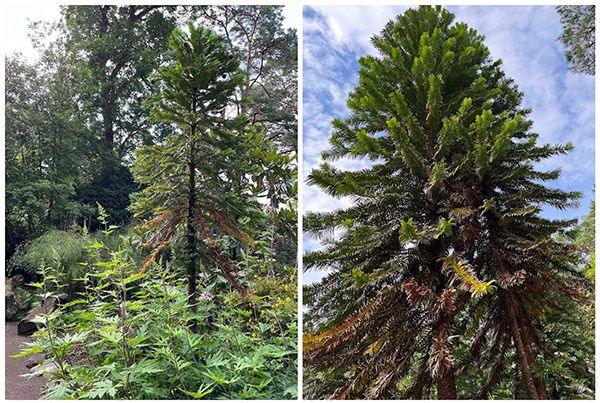
It was thought that the Woolemi Pine was extinct but in 1994 David Noble, a NSW National Parks and Wildlife Officer and avid bushwalker discovered a group of less than 100 of these beautiful and very rare trees growing in the Blue Mountains, New South Wales, Australia.2 The Wollemi Pine belongs to the Araucariaceae family and it was thought to have been extinct for at least two million years. The only previously known examples were fossils which were 175 million years old.3
The trees at Inverewe were cultivated from those found in the Blue Mountains and planted in 2009 in this northern garden thousands of kilometres from their homeland. I am sure Osgood MacKenzie would be chuffed to know about this remarkable addition to his beautiful garden.
To learn more about the remarkable discovery and "rebirth" of the Woolemi Pine please follow the link below.
The story of the Woolemi Pine
Click hereOsgood MacKenzie continued working on the garden up to his death in 1922,when his daughter Mari Sawyer took over. In 1952, a year before her death, she gave Inverewe Garden and an endownment for its future upkeep to the National Trust for Scotland.1
Tomorrow I will return to show and tell you more about this beautiful Scottish treasure.
Credit
1. Notes provided by Noble Caledonia
2.wollemipine.com
3. bbc.com/news/uk-scotland-highlands-islands
